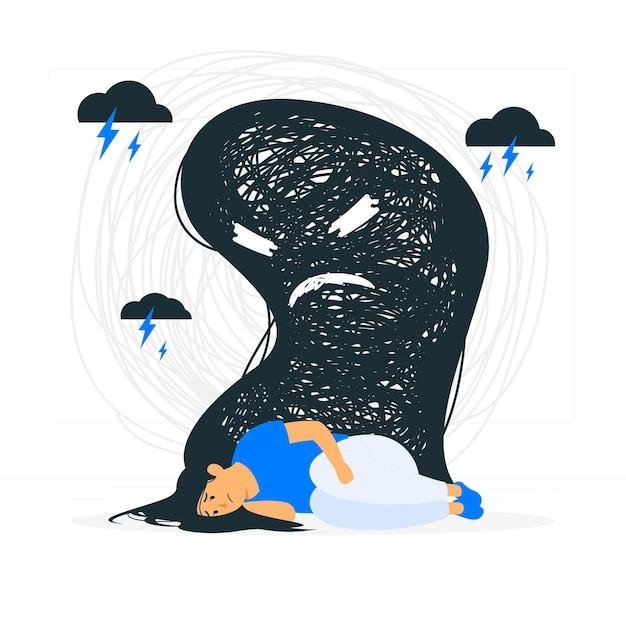Narcissism is a complex personality disorder that affects millions of people worldwide. We often associate narcissists with their grandiose sense of self-importance, lack of empathy, and manipulative behaviors. But have you ever wondered if narcissists themselves ever experience pain or distress?
In this blog post, we will delve into the intriguing world of narcissism to explore whether narcissists truly suffer. We will explore their emotional and psychological dynamics, delve into their relationships with others, and shed light on their ability (or inability) to feel remorse or guilt. So, if you’ve ever asked yourself questions like “Do narcissists cry?” or “Do narcissists ever feel bad?”, keep reading to unravel the mystery behind the narcissistic psyche.
Join us as we navigate through the complexities of narcissism and shed light on the inner workings of the minds of those who display narcissistic traits. Discover whether narcissists truly suffer or if their insatiable desire for control and admiration shields them from experiencing genuine emotional pain.
Does a Narcissist Ever Suffer
We often associate narcissists with unshakable confidence and an air of superiority. But beneath their seemingly invincible façade, do narcissists ever experience suffering? Let’s delve into the intriguing question of whether narcissists have the capacity to feel pain, self-doubt, or vulnerability.
The Vulnerability Veiled by Vanity
While narcissists may project an image of infallibility, their grandiose self-assurance can mask a deep-rooted sense of vulnerability. Beneath the surface, they yearn for external validation and admiration to prop up their fragile self-esteem. They constantly crave attention, as they fear being exposed for their true insecurities.
The Torturous Tug-of-War Within
Narcissists often experience an internal battle between their inflated ego and their fragile self-worth. This conflicting duality can lead to substantial suffering as they try to camouflage their emotional insecurities and seek constant validation to fill their emptiness. Ironically, behind their boastful demeanor lies a person who is tormented by their own doubts and fears.
The Pain of Shattered Relationships
One of the most significant sources of suffering for narcissists arises from their turbulent relationships. Their excessive need for control and admiration can alienate those around them, causing strained connections and shattered friendships. As their distorted self-perception clashes with reality, narcissists may experience profound loneliness and an inability to form genuine, meaningful bonds.
The Relentless Pursuit of Perfection
A narcissist’s relentless pursuit of perfection can be exhausting and self-defeating. Constantly striving to maintain their flawless image, they become trapped in a never-ending cycle of proving their superiority. The pressure to excel in all areas of life can lead to burnout, anxiety, and an overwhelming fear of failure.
The Mask of Invulnerability
Narcissists guard their vulnerability with an impenetrable mask of invulnerability. The fear of being exposed as flawed or weak drives them to deny their own suffering. They adopt a facade of strength to protect their delicate sense of self, often causing their pain to remain hidden, even from themselves.
The Loneliness Behind the Spotlight
While narcissists may bask in the glory of attention and admiration, their inner world can be plagued by profound loneliness. Behind the glittering exterior, they struggle to form deep emotional connections. Their constant need for validation stifles authentic intimacy, leaving them emotionally isolated and unable to establish genuine relationships.
In conclusion, despite their outward display of self-assurance, narcissists do indeed suffer. The relentless pursuit of perfection, the fear of vulnerability, and the constant need for external validation take a toll on their emotional well-being. While we may be tempted to dismiss their suffering due to their hurtful behaviors, it is crucial to remember that deep down, narcissists are also tormented by their own insecurities.
FAQ: Does A Narcissist Ever Suffer
Welcome to our comprehensive FAQ section, where we’ll uncover the truth about whether narcissists suffer or not. Brace yourself for an intriguing journey into the mind of a narcissist!
Why Do Narcissists Hurt the Ones They Love
Narcissists often hurt the ones they love because they crave power and control. They manipulate and exploit those closest to them to maintain their inflated sense of self-importance. It’s their way of asserting dominance and ensuring they always come out on top.
Do Narcissists Cry
Contrary to popular belief, narcissists can shed tears. However, their tears are often more of a performance than a genuine display of emotion. They may cry to manipulate others or to gain sympathy, but it’s unlikely they truly feel the same depth of emotion as non-narcissistic individuals.
How Does a Narcissist Make Love
When it comes to romantic relationships, narcissists are primarily focused on their own pleasure and satisfaction. Intimacy becomes a tool for them to boost their ego and fulfill their needs. Authentic emotional connection and empathy are generally lacking, as narcissists prioritize their own desires above their partner’s.
Do Narcissists Ever Hurt
While narcissists may appear invincible on the outside, they can experience inner turmoil and pain. However, their suffering is often self-inflicted due to their inability to form meaningful connections and build healthy relationships. Their constant need for admiration and validation can create a cycle of emptiness and dissatisfaction.
Do Narcissists Help Others
Narcissists may occasionally assist others, but their intentions are typically self-serving. They might help someone to gain praise or admiration and enhance their image. However, genuine altruism and empathy are not common traits among narcissistic individuals.
How Do You Stop a Narcissist from Hurting You
Protecting yourself from the hurts inflicted by a narcissist requires setting strong boundaries and practicing self-care. Limiting contact, seeking support from loved ones, and considering professional counseling are all steps you can take towards reclaiming your well-being and minimizing the impact of their toxic behavior.
Do Narcissists Usually End Up Alone
While narcissists can struggle to maintain healthy long-term relationships, they don’t necessarily end up alone. Some narcissists find new sources of validation throughout their lives, seeking out individuals who are willing to feed their ego. However, genuine and fulfilling connections may remain elusive for them.
What Does a Narcissist Want
Above all, a narcissist wants constant admiration, validation, and control. They crave attention and will go to great lengths to maintain their grandiose image. Their insatiable desire for power and superiority shapes their relationships and interactions with others.
Do Narcissists Apologize
Apologies are not a narcissist’s strong suit. They struggle with taking personal responsibility and admitting fault. If they do apologize, it’s often a superficial gesture meant to manipulate or pacify their victims rather than a genuine expression of remorse.
Do Narcissists Know They Are Hurting You
Narcissists are typically aware that their actions hurt others, but they are more concerned with protecting their self-image and maintaining control. They may downplay or dismiss the pain they cause, showing little empathy for the feelings of those around them.
How Do You Shut Down a Narcissist
Engaging in arguments or trying to reason with a narcissist is usually a fruitless endeavor. Instead, focus on setting boundaries and disengaging from their manipulative tactics. By redirecting your energy towards self-care, personal growth, and surrounding yourself with a supportive network, you can minimize their influence in your life.
Do Narcissists Feel Guilty
Guilt is not a common emotion for narcissists. They are driven by self-interest and often lack the ability to feel remorse for their actions. Instead of experiencing guilt, they may rationalize their behavior or shift blame onto others.
Does a Narcissist Hate to See You Happy
A narcissist’s desire for control can make them resentful of anyone’s happiness that is not directly under their influence. Seeing someone they perceive as inferior or dependent on them being genuinely happy can be threatening to their fragile ego, leading to jealousy and attempts to undermine that person’s joy.
How Much Do Narcissists Suffer
Narcissists do experience suffering, but it is primarily self-inflicted. Their inability to form meaningful connections and their constant need for external validation often leave them feeling empty and unsatisfied. However, it’s important to note that the suffering they endure is vastly different from the emotional depth experienced by non-narcissistic individuals.
What Drives a Narcissist Insane
Narcissists are driven by an insatiable hunger for admiration and control. Anything that threatens their grandiose self-image or challenges their superiority can push them to the brink of madness. Criticism, rejection, and exposure of their true selves can shatter their carefully crafted facade, leading to extreme emotional reactions.
What Scares the Narcissist the Most
Narcissists are deeply afraid of being exposed as frauds or having their true selves unmasked. The thought of losing control over others and tarnishing their carefully constructed image terrifies them. They will go to great lengths to avoid any situation that could jeopardize their sense of superiority and power.
Do Narcissists Ever Feel Bad
Narcissists may occasionally experience negative emotions, such as anger or frustration when something threatens their ego. However, genuine feelings of guilt or remorse are rare. Their primary concern is protecting their self-image and minimizing anything that challenges their inflated sense of self-worth.
Can Living with a Narcissist Make You Depressed
Living with a narcissist can be emotionally draining and psychologically damaging. Their manipulation, gaslighting, and constant need for control can create a toxic environment that takes a toll on your mental well-being. Over time, this can contribute to feelings of sadness, hopelessness, and even depression.
Does Narcissism Get Worse with Age
Narcissism can be a personality trait that remains relatively stable throughout a person’s life. However, certain life events, such as loss of power or control, may exacerbate narcissistic tendencies. It’s important to note that not all narcissists will become more extreme with age, but their behavior can become more deeply ingrained and difficult to manage.
What to Say to Disarm a Narcissist
Disarming a narcissist can be a delicate dance. While it’s challenging to change their core traits, employing certain strategies can help diffuse tense situations. Focus on using assertive communication, setting clear boundaries, and avoiding feeding into their need for attention or validation. Remember, maintaining your own emotional well-being should be your top priority.
Do Narcissists Get Worse Over Time
The severity of narcissistic behavior can vary from person to person. While some individuals may show a consistent pattern of narcissistic traits throughout their lives, others may mellow or become more self-aware with age. It’s essential to recognize that change is difficult for narcissists, and significant improvement is rare without professional intervention and personal growth.
Now that you’ve navigated the twisted realm of narcissism, armed with knowledge and a touch of wit, you can better understand the complexities of this personality disorder. Remember, it’s crucial to prioritize your own well-being when dealing with narcissists, as their manipulative tendencies can take a toll on your emotional health.

